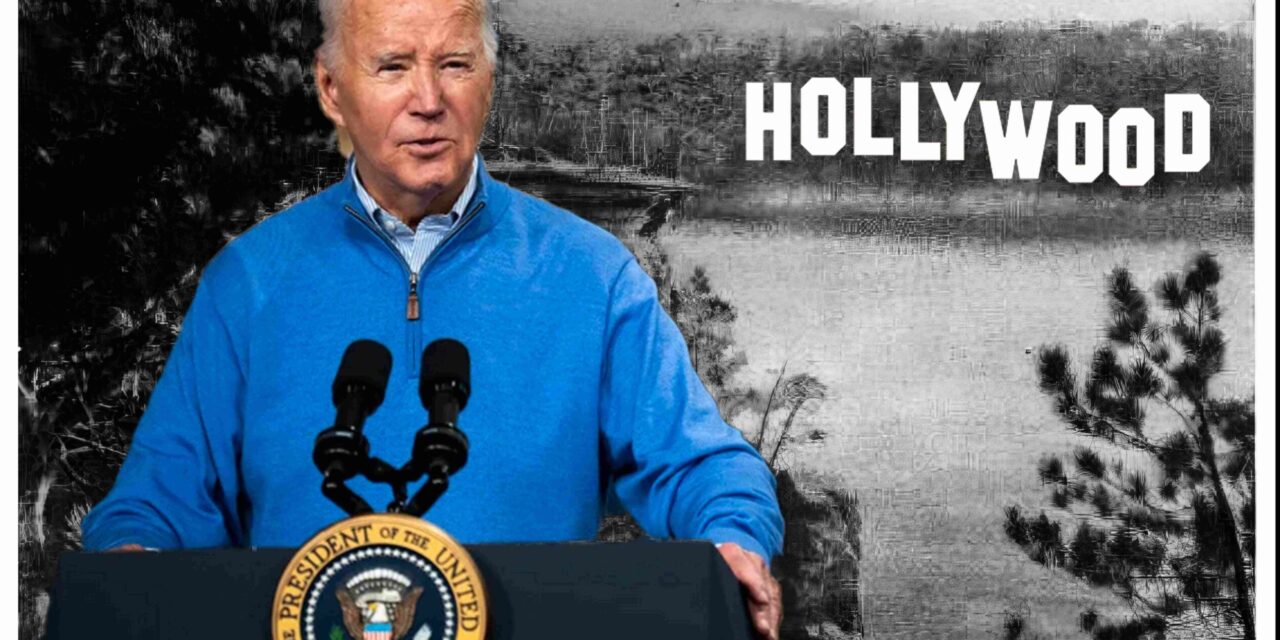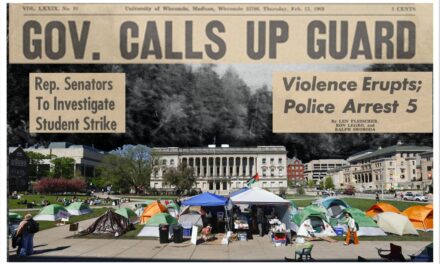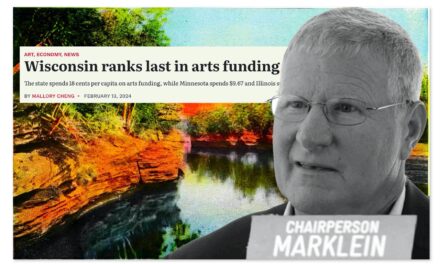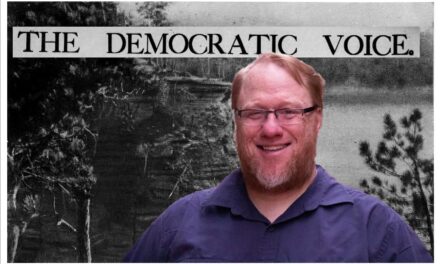As President Biden’s reelection campaign kicks into high gear, he’s turning to a familiar cast of characters to help him secure a second term: Hollywood’s elite. But while the glitz and glamour of celebrity endorsements and star-studded fundraisers may seem like a winning strategy, it raises a crucial question: why, when there is an entire industry of expert storytellers out of work, does Joe Biden focus on the few celebrities and CEOs that tanked the industry in the first place?
The entertainment industry is facing an unprecedented crisis, with writers, actors, directors, and professionals dedicated to the creative trades bearing the brunt of the fallout. As one studio head put it, “The industry is in a deep and existential crisis. It is probably the deepest and most existential crisis it’s ever been in.” The rise of streaming platforms, once heralded as a new frontier for creativity, has instead led to increased instability and precarity for writers. “It’s like a whole world of intellectuals and artists got a multibillion-dollar grant from the tech world,” writer Alena Smith observed, “But we mistook that, and were frankly actively gaslit into thinking that that was because they cared about art.”
Meanwhile, Biden’s campaign strategy seems to be doubling down on the very forces that have contributed to the industry’s decline. By cozying up to power players like Jeffrey Katzenberg and courting celebrity endorsements, the campaign runs the risk of alienating the rank-and-file workers who are struggling to make ends meet. As one Democratic strategist noted, “Celebrities can’t save campaigns but they can provide platforms for the candidate to make their cases.” But what good are those platforms if the candidate isn’t addressing the root causes of the industry’s woes?
It’s time for Biden and the Democratic party to take a hard look at their priorities. Instead of focusing on the glitz and glamour of Hollywood’s upper echelons, they should be working to support the unemployed storytellers and creative professionals who are the lifeblood of the industry. By listening to or even addressing the issue, they can help ensure that Hollywood remains a vital and vibrant part of American culture for generations to come. As the saying goes, “nobody knows anything” in Hollywood – but one thing is clear: the status quo is no longer working, and it’s time for a change. Or at least, a bigger change.
In his article “The Life and Death of Hollywood,” Daniel Bessner paints a vivid picture of an industry that has undergone a profound transformation in recent decades. He writes, “The truth was that the forces that had opened doors for Smith were the same ones that had made her individual work seem not to matter. They were the same forces that had been degrading writers’ working lives for some time, and they were cannibalizing the business of Hollywood itself.”
These forces include the increasing consolidation of media companies, the rise of streaming platforms, and the growing influence of financial firms and asset management companies in the entertainment industry. As Bessner notes, “During the Cold War it was customary to critique the military-industrial complex as an economic parasite separated from, but living off the free enterprise system. We conclude that the new military-entertainment complex of the 1990s has become a partner of the entertainment industry while transforming itself into the training ground for what we might consider the post-human warfare of the future.”
The result has been a creative landscape that is increasingly centralized, homogenized, and driven by short-term financial considerations rather than artistic vision or cultural significance. This has led to a narrowing of the range of stories being told and a lack of representation for many communities and voices.
At the same time, the rise of film production incentives in states across the country, as documented in the New York Times article “States Have Spent $25 Billion to Woo Hollywood. Is It Worth It?”, has created an uneven playing field that has further concentrated storytelling power in a handful of states and made it difficult for local communities to compete.
But amidst these challenges, there are also tremendous opportunities. The democratization of storytelling tools and platforms, from smartphones to social media, has made it easier than ever for individuals and communities to create and share their own narratives. As Liz Neeley notes in her interview with NPR’s Short Wave podcast, “Storytelling is about being seen for the totality of who you are. And I believe you deserve to be known. You deserve to be known for your full self.”
By empowering local communities to tell their own stories and by building a more decentralized and inclusive creative ecosystem, we have the chance to tap into this tremendous potential and to create a new kind of Hollywood – one that reflects the full diversity and complexity of the American experience.
This will require us to think creatively about how we support and incentivize storytellers in every corner of the country, from providing access to resources and training to building new networks and platforms for distribution. It will require us to challenge the status quo and to imagine new models for financing, producing, and sharing stories that prioritize artistic vision and cultural significance over short-term profits.
But the rewards of this exploration are immeasurable. By broadening the range of voices and experiences represented in our national narrative, we have the opportunity to build a more just, more equitable, and more vibrant creative landscape that reflects the best of who we are as a nation. So let us embrace this challenge with the same spirit of exploration and possibility that has long defined the American story, and let us work together to write the next chapter of that story – one community at a time.
If only there was some sort of channel or broadcasting service that could be funded to tell stories and create productions in all the states. But I guess that’s just another Hollywood dream.
- https://thehill.com/homenews/campaign/4642082-can-hollywood-save-biden/
- https://www.latimes.com/entertainment-arts/business/newsletter/2024-05-07/not-just-fall-guy-summer-box-office-is-bleak-for-hollywood-the-wide-shot
- https://www.nytimes.com/2024/03/21/arts/states-hollywood-film-tax-incentives.html
- https://www.cnn.com/2024/01/25/politics/biden-wisconsin-economy-2024/index.html





